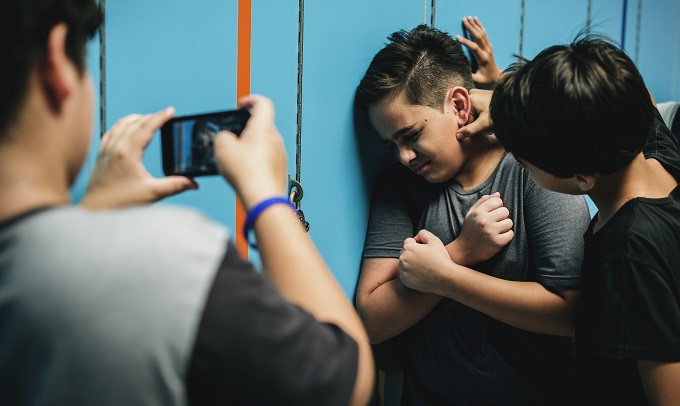Bullying behaviour won’t thrive in positive school environments

Bullying behaviour won’t thrive in positive school environments where children and young people feel accepted and free to express their uniqueness.
To highlight the importance of inclusion, diversity and belonging for Kiwi kids, this year’s Bullying Free NZ Week is focused on Whakanuia Tōu Āhua Ake / Celebrating Being Us.
It’s a chance for every child and young person to celebrate what makes them and others unique, whether that’s talents, interests, appearance, disability, culture, beliefs, race, gender and sexuality.
Bullying-Free NZ Week is an annual nationwide event organised by the Bullying Prevention Advisory Group (BPAG), which is committed to reducing bullying in New Zealand schools. It’s an opportunity for schools and their communities to raise awareness about bullying and its serious consequences. The week ends with Pink Shirt Day, 17 May, when New Zealanders speak up, stand together to stop bullying, and celebrate diversity in schools, workplaces and communities.
Secretary for Education and Chair of BPAG, Iona Holsted said, “This year’s BFNZ Week’s theme of ‘Celebrating Being Us’ creates an opportunity for students to and find out more about what makes each of them unique and challenge our assumptions about each other.
“A sense of belonging and wellbeing is central to students’ success at school and in life. Those schools that have a strong focus on student wellbeing make it difficult for bullying behaviour to be tolerated. Evidence shows us that by incorporating wellbeing programmes into our schools, students are more confident, resilient and accepting of others because they feel happy with their own identity.”
Students have a unique and important perspective on what makes them feel safe and how they can belong within their school environment. It’s important that children and young people are part of the conversation so bullying prevention approaches are truly student-focused and effective.
School leaders are also encouraged to give students the opportunity to anonymously share how they feel about school through the free Wellbeing@School student survey.
Judge Andrew Becroft, Children’s Commissioner and BPAG member said: “With New Zealand having the highest rate of reported school bullying in the developed world, the focus on this issue is of vital importance. Students’ voices are critical to any discussion about bullying – they have a unique and important perspective that we adults can learn from. When students can have a genuine say not only is it a catalyst for change, but it provides a sense of belonging, or being respected and valued.”
Nicholas Pole, Chief Review Officer at the Education Review Office, a BPAG member, says that Bullying-Free NZ Week is a chance to bring the whole school together to talk about the issue. “Our research shows that almost all schools have some bullying prevention policies in place but effective schools have strong relationships between students, parents, school leadership and the community. This makes the difference in how a school responds when bullying happens.”
During the week, schools can run classroom activities to get students talking about bullying and review their anti-bullying policies. They might want to get creative and tell their story in the BFNZ Week competition.









